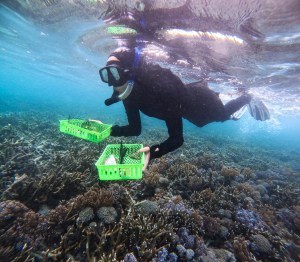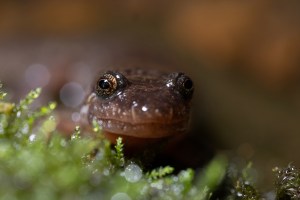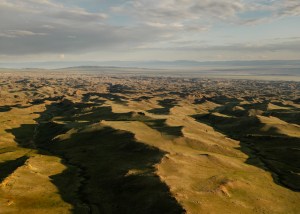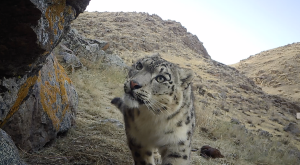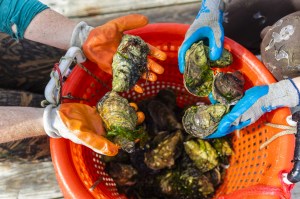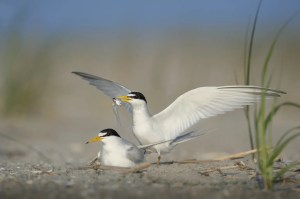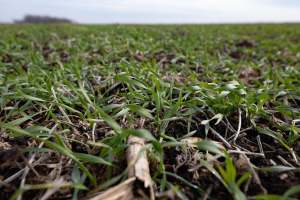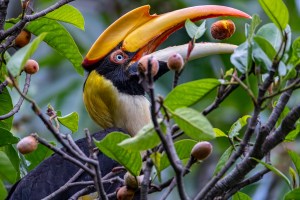Discover stories in TNC Priority
For Climate Adaptation, Forests Offer More Than Carbon Storage
New research finds that forests play a far greater role in protecting people from climate change than previously recognized.
Stress-Testing Corals to Find Raja Ampat’s Most Resilient Reefs
Low-tech field science and community partnerships combine to help identify the most climate-resilient reefs in Raja Ampat.
Case Study: Sustainable Sea Cucumber Fisheries Offer Both Rewards & Challenges
Sustainable fisheries can be a win-win solutions for both conservation and local communities, especially in the Indo-Pacific. But establishing them comes with unique challenges.
Growing Seagrass? Better Add a Sprinkle of Bird Poop
TNC and its partners are restoring habitat with the help of a little bird-poop fertilizer.
Get Up Close With Alabama’s Rivers
Follow photographer Mac Stone as he explores the pitcher plant bogs, nesting bird islands, and floodplain forests for Alabama’s river ecosystems.
Turning the Lens on Mongolia
Mongolia shaped his photography career. Now, 25 years later, he returns to capture the country’s commitment to a sustainable future.
Camera Trap Chronicles: Up Close With Snow Leopards
Enjoy this footage of snow leopards from Mongolia, including the animals scent marking and vocalizing.
Aquaculture Can Benefit Blue Carbon Ecosystems
A new review, led by TNC scientists, explores the potential for bivalve aquaculture to benefit blue carbon ecosystems.
Call Boxes & Crow Effigies: Protecting Nesting Birds in Cape May
TNC is using call boxes, fake effigies, and bird decoys to protect nesting shorebirds on Cape May.
How Living Cover Could Help Heal the U.S. Corn Belt
Regenerative ag practices—like cover crops, agroforestry, and pastured livestock—could reduce nitrate loss, erosion and emissions.
Climate Mitigation Depends on Seed-Dispersing Wildlife
A new study finds that the loss of seed-dispersing species in tropical forests more than halves the potential for areas of natural regrowth to sequester carbon.
Strictly Protected Marine Areas Can Effectively Deter Most Industrial Fishing
Industrial fishing vessels in fully and highly protected marine areas occur about 9 times less frequently than in unprotected surrounding waters.

